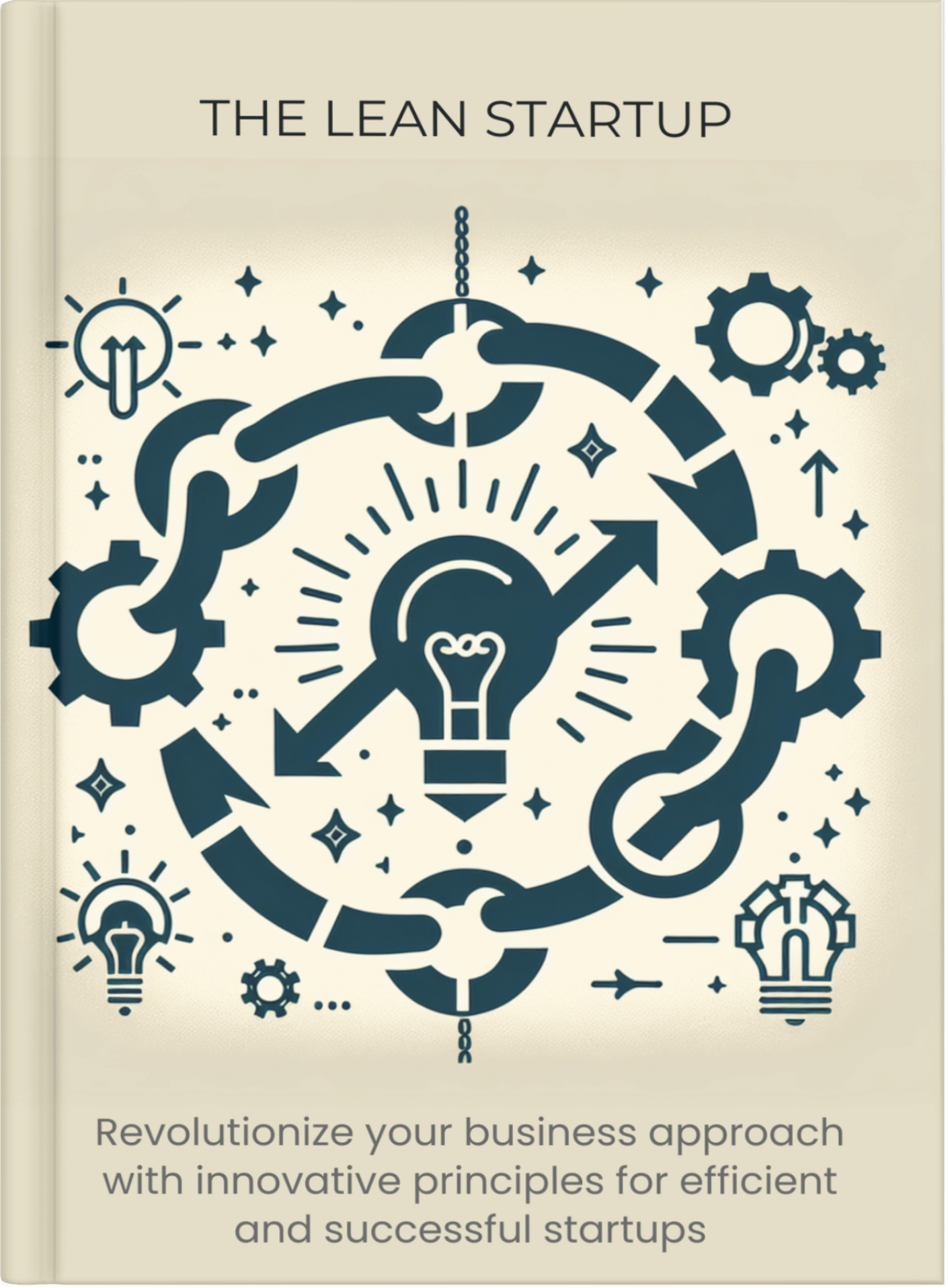
The Lean Startup
Eric Ries
The Lean Startup by Eric Ries is a guide for entrepreneurs and startups to build successful businesses by adopting a lean approach. It emphasizes the importance of continuous innovation, validated learning, and iterative product development. The book introduces concepts such as the Minimum Viable Product (MVP), Build-Measure-Learn feedback loop, and actionable metrics to help startups navigate uncertainty and achieve sustainable growth.
0:000:00
Keypoint 1: Introduction to Lean Startup
The Lean Startup methodology is a revolutionary approach to business development that aims to shorten product development cycles, rapidly discover if a proposed business model is viable, and quickly adapt to changes. This methodology is particularly useful for startups, which often operate under conditions of extreme uncertainty. The core idea is to build a sustainable business by focusing on validated learning, scientific experimentation, and iterative product releases.
The Lean Startup approach is grounded in the principles of lean manufacturing, which emphasizes waste reduction and efficiency. However, it adapts these principles to the unique challenges faced by startups. Traditional business plans often rely on assumptions and long-term projections that may not hold true in a rapidly changing market. In contrast, the Lean Startup methodology encourages entrepreneurs to test their hypotheses through small, incremental experiments. This allows them to gather real-world data and make informed decisions based on actual customer feedback.
One of the key components of the Lean Startup methodology is the concept of the Minimum Viable Product (MVP). An MVP is a simplified version of a product that includes only the essential features needed to test a specific hypothesis. By releasing an MVP, startups can quickly gather feedback from early adopters and use this information to refine their product. This iterative process helps to minimize the risk of building a product that no one wants.
Another important aspect of the Lean Startup methodology is the Build-Measure-Learn feedback loop. This cycle involves building a product, measuring how it performs in the market, and learning from the results. By continuously iterating through this loop, startups can rapidly improve their products and business models. This approach not only accelerates the development process but also ensures that the final product is closely aligned with customer needs.
The Lean Startup methodology also emphasizes the importance of a strong vision and a flexible strategy. While it is crucial to have a clear vision of the problem you are trying to solve, it is equally important to remain open to changing your strategy based on new information. This balance between vision and flexibility allows startups to navigate the uncertainties of the market and find a path to sustainable growth.
The Lean Startup approach is grounded in the principles of lean manufacturing, which emphasizes waste reduction and efficiency. However, it adapts these principles to the unique challenges faced by startups. Traditional business plans often rely on assumptions and long-term projections that may not hold true in a rapidly changing market. In contrast, the Lean Startup methodology encourages entrepreneurs to test their hypotheses through small, incremental experiments. This allows them to gather real-world data and make informed decisions based on actual customer feedback.
One of the key components of the Lean Startup methodology is the concept of the Minimum Viable Product (MVP). An MVP is a simplified version of a product that includes only the essential features needed to test a specific hypothesis. By releasing an MVP, startups can quickly gather feedback from early adopters and use this information to refine their product. This iterative process helps to minimize the risk of building a product that no one wants.
Another important aspect of the Lean Startup methodology is the Build-Measure-Learn feedback loop. This cycle involves building a product, measuring how it performs in the market, and learning from the results. By continuously iterating through this loop, startups can rapidly improve their products and business models. This approach not only accelerates the development process but also ensures that the final product is closely aligned with customer needs.
The Lean Startup methodology also emphasizes the importance of a strong vision and a flexible strategy. While it is crucial to have a clear vision of the problem you are trying to solve, it is equally important to remain open to changing your strategy based on new information. This balance between vision and flexibility allows startups to navigate the uncertainties of the market and find a path to sustainable growth.

